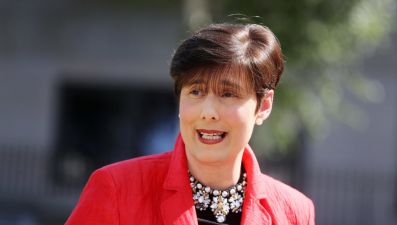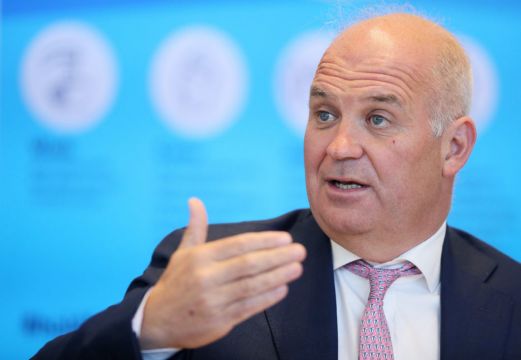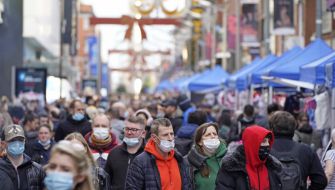The chief medical officer has urged the public to reduce social mixing following confirmation that schools will return as planned on Thursday.
Dr Tony Holohan said it is important that "discretional mixing indoors with people from other households" is limited as much as possible as healthcare services come under increasing pressure due to the latest wave of infections.
On Tuesday, the Department of Health confirmed 21,302 new cases of Covid-19, while there were 884 people with the virus in hospital, 90 of whom were in intensive care.
"For the second January in a row, a significant surge in infection from Covid-19 is having a major impact on essential services across all sectors, including the health service," Dr Holohan tweeted on Tuesday evening.
Despite the incidence of the virus among school-aged children having reduced in early December, the CMO added: "Given the very high and rising incidence of Covid-19 across all age groups in the community, it is inevitable that children will pick up this infection from household contacts in the days and weeks ahead."
As one of our key essential services – the education sector prepares to restart in person education this week, it is important that we continue to minimise, as much as we can, discretionary mixing indoors with people from other households.
Advertisement— Dr Tony Holohan (@DrTonyHolohan) January 4, 2022
"We also know, as a result, that there will be cases and outbreak in schools and childcare settings," he said.

Despite this, Dr Holohan said national and international evidence has "given us reason to believe that schools are a lower risk environment for the transmission of Covid-19", adding that "the majority of children who are infected experience a mild form of this disease".
The CMO reiterated that children showing Covid symptoms, or who are a household close contact of a confirmed case should not attend school.
He also reminded parents that children aged 5-12 are now eligible for the Covid vaccine and can be registered on the HSE website.
"We must continue to restrict our movements to the greatest extent possible, by limiting the people we interact with from other households if we are to suppress transmission of Covid-19 and sustain our essential services," Dr Holoan added.







